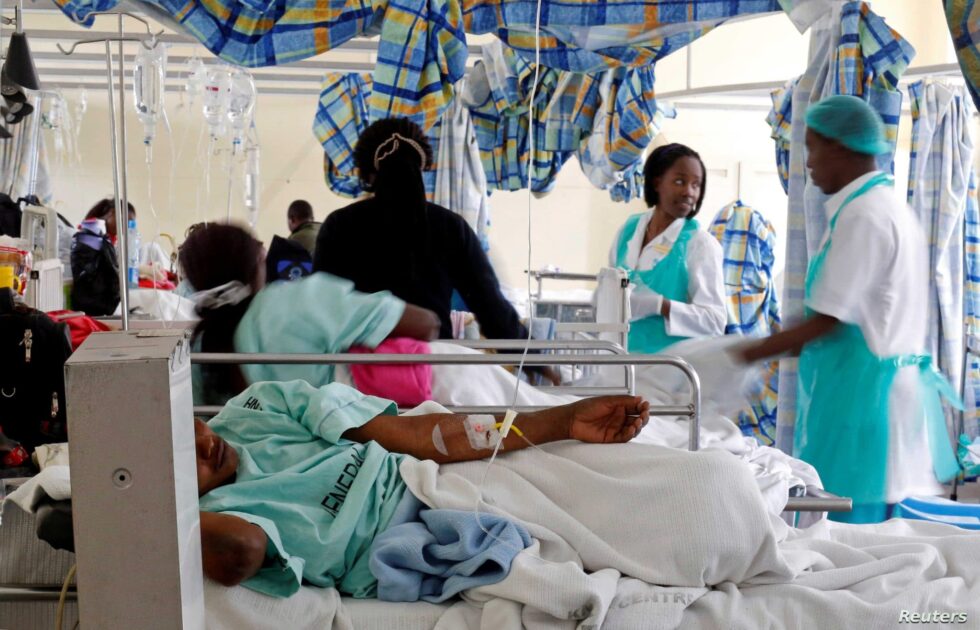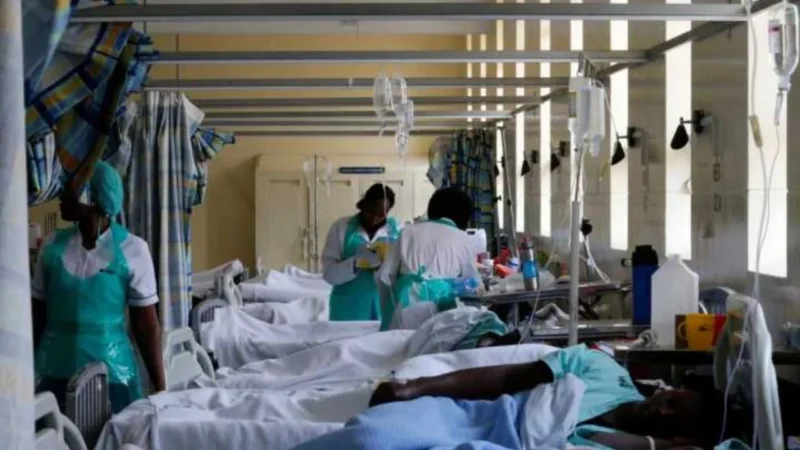In the aftermath of devastating floods that hit parts of Adamawa State, the Yola North Local Government Area (LGA) is grappling with a deadly cholera outbreak.
The National Emergency Management Agency (NEMA) confirmed on Tuesday, September 17, that seven lives had been lost, while 71 individuals are receiving treatment in various medical facilities. The crisis comes as a stark reminder of the ongoing vulnerability of rural regions in Nigeria to waterborne diseases like cholera, exacerbated by natural disasters.
The Root Cause
The recent floods, which ravaged several communities in Yola North, are believed to have triggered the outbreak by contaminating the area’s primary drinking water sources. NEMA, in an official statement shared via its X handle (formerly known as Twitter), expressed concern about the public health risk posed by the floodwaters, which have compromised sanitation infrastructure and made it nearly impossible for residents to access clean, potable water.
“The National Emergency Management Agency has responded to a suspected cholera outbreak in Yola North LGA of Adamawa State, affecting the communities of Alkalawa, Doubeli, Rumde, and Gwadabawa. As of September 16, 2024, 71 patients have been hospitalised, with over 100 under observation, and seven confirmed deaths,” the statement read.
The agency added that an overflow at the primary isolation centre meant that some patients were transferred to the Federal Medical Centre for continued care. This situation highlights the scale of the crisis, with local healthcare infrastructure struggling to manage the sudden influx of cholera patients.
Cholera: A Persistent Health Threat
Cholera remains a major health concern in Nigeria, particularly in rural areas where access to clean water and sanitation facilities is limited. The World Health Organisation (WHO) defines cholera as an acute diarrheal disease, often caused by the ingestion of food or water contaminated with the bacterium Vibrio cholerae. In its severe form, cholera can lead to extreme watery diarrhoea, vomiting, and fatal dehydration if not treated promptly.
According to WHO guidelines, treatment for cholera involves rehydration therapy and antibiotics in severe cases. However, the most effective way to control and prevent cholera outbreaks lies in improving water sanitation and ensuring access to safe drinking water, issues that plague many Nigerian communities.
To mitigate the spread of cholera in Adamawa, NEMA, in collaboration with the Adamawa State Government, has introduced a series of emergency interventions. These measures include the chlorination of toilets, provision of water treatment chemicals, and public health campaigns aimed at raising awareness about cholera prevention. Community members in the affected areas are being educated about hygiene practices and the importance of boiling drinking water to reduce the risk of infection.
“NEMA is closely monitoring the situation and coordinating with stakeholders for timely intervention,” the agency reported. These efforts aim to reduce further casualties and prevent the outbreak from spreading to other LGAs and neighbouring states.
Despite these efforts, the outbreak underscores Nigeria’s continuing struggle with cholera. The country has seen a re-emergence of cholera since the beginning of 2024, with frequent outbreaks reported in regions like Lagos, where the population density further complicates efforts to manage and control the disease.
As flooding incidents become more frequent due to climate change, the risk of cholera and other waterborne diseases is likely to increase, particularly in flood-prone areas like Adamawa.
Experts have long warned that Nigeria must invest in better infrastructure, particularly in its rural communities, to prevent such public health emergencies. Without significant improvements in water sanitation, outbreaks like this are likely to continue.
For now, the focus remains on containing the outbreak in Adamawa and ensuring that those affected receive adequate treatment. With over 100 people still under observation, local and national authorities will need to intensify efforts to prevent further deaths and ensure the safety of drinking water in the affected communities.











Join our Channel...